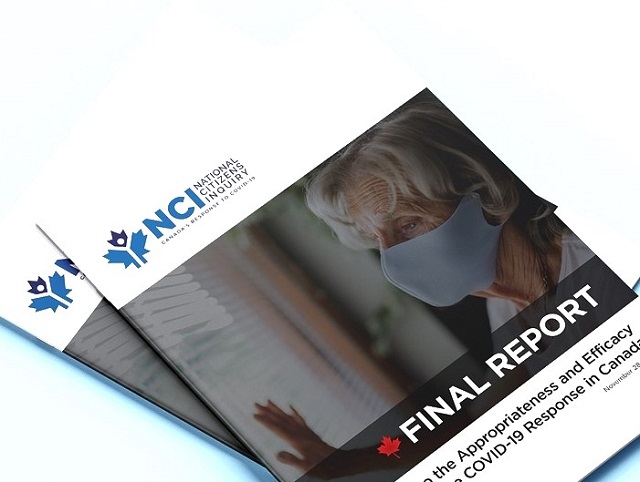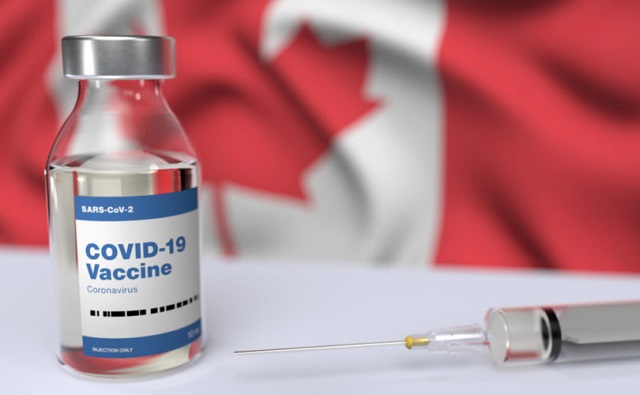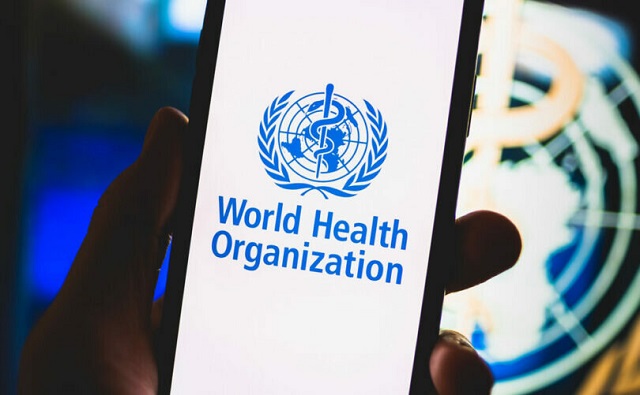COVID-19
Canadian citizen-led inquiry’s final report calls for all COVID court cases to be reviewed at once

From LifeSiteNews
‘These testimonies provide irrefutable evidence that an unprecedented assault has been waged against the citizens of Canada. Not since World War II has the nation experienced such a devastating attack on its people,’ a National Citizens’ Inquiry commissioner said.
The final report from the Canadian citizen-led and funded National Citizens’ Inquiry (NCI), which was created in 2022 to investigate the “unprecedented” COVID mandates imposed on Canadians by all levels of government, has called for a full review of all COVID-related court cases.
In the NCI’s final report, released November 28, one of the main recommendations it made is that a full review of all COVID court cases be held, to restore the public’s faith in Canada’s judiciary system.
The final report is 5,324 pages and includes dozens of recommendations for politicians (lawmakers) along with public institutions and the general public.
The report was compiled by four independent commissioners. The NCI was tasked with looking into the negative side effects many Canadians experienced after getting the experimental COVID shots, with testimony from doctors affected by the jabs.
According to NCI, “three out of four Canadians report having been harmed by Canada’s COVID-19 policies.”
One of the NCI’s commissioners, Kenneth Drysdale, noted how the policy, legal, and health authority “interventions into the lives of Canadians, our families, businesses, and communities,” were “to a great extent remain, significant.”
“These testimonies provide irrefutable evidence that an unprecedented assault has been waged against the citizens of Canada. Not since World War II has the nation experienced such a devastating attack on its people,” Drysdale added.
Thousands of Canadians who defied COVID mandates were fined, with many others serving jail time, including Christian pastors. Others lost their jobs for choosing not to get the COVID shots.
Some provinces, however, had showed some leniency. In the province of Alberta, in July, Justice Barbara Romaine from Alberta’s Court of Kings Bench ruled that politicians violated the province’s health act by making decisions regarding COVID mandates without authorization.
The decision put into doubt all cases involving those facing non-criminal COVID-related charges in the province.
As a result of July’s court ruling, Alberta Crown Prosecutions Service (ACPS) said Albertans currently facing COVID-related charges will likely not face conviction but will instead have their charges stayed.
Thus far, in addition to Johnson, café owner Chris Scott and Alberta pastors James Coates, Tim Stephens, and Artur Pawlowski, who were all jailed for keeping their churches open under the leadership of Kenney, have had the COVID charges against them dropped due to the court ruling.
Countless others have had smaller charges against them for going against COVID mandates dropped as well. However, there are still some facing charges relating to border blockade protests. Also, many other Canadians who do not live in Alberta are still fighting their COVID-related charges.
The NCI was announced in the fall of 2022 and was headed by former Leader of the Official Opposition Preston Manning, who was an MP for years and the sole leader of Canada’s Reform Party.
It is a citizen-led and funded independent initiative investigating the government’s response to the COVID so-called pandemic.
NCI hearings saw testimony from 300 Canadians
The NCI held 24 days of public hearings in eight Canadian cities, with testimony from 300 witnesses, many of them doctors, lawyers, teachers, psychologists, morticians, and officials in emergency management. The NCI had issued 63 non-legally binding “subpoenas” to people in government, but none appeared before the inquiry.
The NCI’s final report documents how COVID mandates, including vaccine mandates, enacted at the hands of government at all levels, did irreparable harm to Canadian society.
The report said that a full judicial investigation into how COVID shots were approved in Canada needs to occur, which would include the potential to see if there is any criminal liability under current Canadian law.
The NCI’s interim report was released in September 2023 and called for an end to the use of the current COVID-19 injections.
LifeSiteNews covered previous testimony from the NCI. In May, a former journalist who worked for the state-funded Canadian Broadcasting Corporation (CBC) shockingly revealed that reporters were stopped from being able to cover stories critical of COVID vaccines and lockdowns and were instead encouraged to push government “propaganda.”
The shocking revelations were made by past CBC Manitoba reporter Marianne Klowak during testimony at the NCI on May 18 in Ottawa.
Earlier this year, retired Canadian Lt. Col. David Redman testified before the NCI that legacy media outlets such as the CBC are “ministries of propaganda.”
The four commissioners on the NCI included Drysdale, Janice Kaikkonen, elected school board trustee Heather DiGregorio, a senior partner in a law firm, and Bernard Massie, an independent consultant in biotechnology.
Throughout most of the COVID crisis, Canadians from coast to coast were faced with COVID mandates, including jab dictates, put in place by both the provincial and federal governments.
After much pushback, thanks in particular to the Freedom Convoy, most provincial mandates were eliminated by the summer of 2022.
In late 2022, the Canadian federal government under Prime Minister Justin Trudeau finally “suspended” a COVID jab travel mandate for flying.
COVID-19
Canada’s COVID vaccine injury program has paid out just 6% of claims so far

From LifeSiteNews
Data from Canada’s Vaccine Injury Support Program shows that to date, only 138 of the 2,233 claims have been approved by a medical board for a payout.
Canada’s program for those injured by the COVID vaccines, which the federal government still insists are safe, has only paid out 6 percent of the claims made.
A look at the data from the nation’s Vaccine Injury Support Program (VISP) shows that to date, only 138 of the 2,233 claims made to the program have been approved by a medical board for payout.
Some 2,069 claims have had an “administrative review completed” with 1,825 being deemed “admissible,” but remain in the process of “being depersonalized and prepared to move forward to a preliminary medical review.” Some 620 claims have been assessed by the Medical Review Board but are still under review.
Total payouts so far stand around $11.2 million, with the number of people filing claims to the program growing steadily.
LifeSiteNews recently reported that the Liberal government of Prime Minister Justin Trudeau’s recently tabled 2024 budget earmarked an extra $36 million for the program.
Some people who were successful in getting payouts from VISP have said that the compensation awarded was insufficient considering the injuries sustained from the COVID shots.
As reported by LifeSiteNews last year, 42-year-old Ross Wightman from British Columbia launched a lawsuit against AstraZeneca, the federal government of Canada, the government of his province, and the pharmacy at which he was injected after receiving what he considers inadequate compensation from VISP.
He was one of the first citizens in Canada to receive federal financial compensation due to a COVID vaccine injury under VISP. Wightman received the AstraZeneca shot in April 2021 and shortly after became totally paralyzed. He was subsequently diagnosed with Guillain-Barré Syndrome.
Whitman was given a one-time payout of $250,000 and about $90,000 per year in income replacement, but noted, as per a recent True North report, that he does not even know if those dollar amounts “would ease the pain.”
“Given the extent of the permanent life-changing injuries, a couple hundred thousand dollars isn’t much, that’s for sure,” he said.
All Canadian provinces except Quebec are covered by VISP, who has its own vaccine compensation program that also appears to be slow at paying out to applicants.
Yesterday, LifeSiteNews reported about a 30-year-old Quebec man who developed a severe skin condition after taking Moderna’s mRNA experimental COVID-19 shot. He still has not heard anything from the provincial government regarding compensation through its vaccine injury program despite the debilitating nature of his condition.
Despite the need for a federal program to address those injured by the vaccines once mandated by the Trudeau government, Health Canada still says “[I]t’s safe to receive a COVID-19 vaccine following infection with the virus that causes COVID-19. Vaccination is very important, even if you’ve had COVID-19.”
The federal government is also continuing to purchase COVID jabs despite the fact the government’s own data shows that most Canadians are flat-out refusing a COVID booster injection.
Indeed, records show the federal government has spent approximately $9.9 million on social media advertising to promote the
COVID-19
States move to oppose WHO’s ‘pandemic treaty,’ assert states’ rights

From LifeSiteNews
Utah and Florida passed laws intended to prevent the WHO from overriding states’ authority on matters of public health policy, and Louisiana and Oklahoma have legislation set to take effect soon pending final votes.
Two states have passed laws – and two states have bills pending – intended to prevent the World Health Organization (WHO) from overriding states’ authority on matters of public health policy.
Utah and Florida passed laws and Louisiana and Oklahoma have legislation set to take effect soon pending final votes. Several other states are considering similar bills.
The WHO member states will convene next month at the World Health Assembly in Geneva, Switzerland, to vote on two proposals – the so-called “pandemic accord” or “pandemic treaty,” and amendments to the International Health Regulations (IHR) – that would give the WHO sweeping new pandemic powers.
The Biden administration supports the two WHO proposals, but opposition is growing at the state level.
Proponents of the WHO’s proposals say they are vital for preparing humanity against the “next pandemic,” perhaps caused by a yet-unknown “Disease X.”
But the bills passed by state legislatures reflect frequently voiced criticisms that the WHO’s proposals imperil national sovereignty, medical and bodily sovereignty and personal liberties, and may lead to global vaccine mandates.
Critics also argue the WHO proposals may open the door to global digital “health passports” and global censorship targeting alleged “misinformation.”
Such criticisms are behind state legislative initiatives to oppose the WHO, on the basis that states’ rights are protected under the 10th Amendment of the U.S. Constitution. Under the 10th Amendment, all powers not delegated to the federal government are reserved to the states. Such powers, critics say, include public health policy.
Mary Holland, president of Children’s Health Defense (CHD), told The Defender:
It is encouraging to see states like Louisiana, Oklahoma, and Utah pass resolutions to clarify that the WHO has no power to determine health policy in their states. Historically, health has been the purview of state and local government, not the U.S. federal government.
There is no legitimate constitutional basis for the federal government to outsource health decision-making on pandemics to an international body. As state legislatures become aware of the WHO’s agenda, they are pushing back to assert their autonomy – and this is welcome.
Internist Dr. Meryl Nass, founder of Door to Freedom, told The Defender that, contrary to arguments that the drafters of the constitution could not foresee future public health needs, vaccines, doctors, and medicine were all in existence at the time the 10th Amendment was written. They were “deliberately left out,” she said.
READ: Thousands of protesters rally in Tokyo against proposed WHO pandemic treaty
This has implications for the federal government’s efforts in support of the WHO’s proposals, according to Nass. “The government doesn’t have the authority to give the WHO powers for which it lacks authority,” she said.
Tennessee state Rep. Bud Hulsey (R-Sullivan County) told The Epoch Times, “We’re almost to a place in this country that the federal government has trampled on the sovereignty of states for so long that in peoples’ minds, they have no options.”
“It’s like whatever the federal government says is the supreme law of the land, and it’s not. The Constitution is the supreme law of the land,” he added.
Utah, Florida laws passed
On January 31, Utah Gov. Spencer Cox (R) signed Senate Bill 57, the “Utah Constitutional Sovereignty Act,” into law. It does not mention the WHO, but prohibits “enforcement of a federal directive within the state by government officers if the Legislature determines the federal directive violates the principles of state sovereignty.”
In May 2023, Florida passed Senate Bill 252 (SB 252), a bill for “Protection from Discrimination Based on Health Care Choices.” Among other clauses, it prohibits businesses and public entities from requiring proof of vaccination or prophylaxis for the purposes of employment, receipt of services, or gaining entry to such entities.
According to Section 3 of SB 252:
A governmental entity as defined… or an educational institution… may not adopt, implement, or enforce an international health organization’s public health policies or guidelines unless authorized to do so under state law, rule, or executive order issued by the Governor.
Nass told The Defender that Florida’s legislation offers a back door through which the state can implement WHO policies because it allows a state law, rule, or executive order by the governor to override the bill. According to Nass, efforts to strengthen the bill have been unsuccessful.
SB 252 was one of four bills Florida Gov. Ron DeSantis (R) signed in May 2023 in support of medical freedom. The other bills were House Bill 1387, banning gain-of-function research, Senate Bill 1580, protecting physicians’ freedom of speech, and Senate Bill 238, prohibiting discrimination on the basis of people’s medical choices.
Louisiana, Oklahoma also push back against the WHO
The Louisiana Senate on March 26 voted unanimously to pass Senate Law No. 133, barring the WHO, United Nations (U.N.) and World Economic Forum from wielding influence over the state.
According to the legislation:
No rule, regulation, fee, tax, policy, or mandate of any kind of the World Health Organization, United Nations, and the World Economic Forum shall be enforced or implemented by the state of Louisiana or any agency, department, board, commission, political subdivision, governmental entity of the state, parish, municipality, or any other political entity.
The bill is now pending Louisiana House of Representatives approval and if passed, is set to take effect August 1.
On April 24, the Oklahoma House of Representatives passed Senate Bill 426 (SB 426), which states, “The World Health Organization, the United Nations and the World Economic Forum shall have no jurisdiction in the State of Oklahoma.”
READ: Lawmakers, conservatives blast WHO plan for ‘global governance’ on future pandemics
According to the bill:
Any mandates, recommendations, instructions, communications or guidance issued by the World Health Organization, the United Nations or the World Economic Forum shall not be used in this state as a basis for action, nor to direct, order or otherwise impose, contrary to the constitution and laws of the State of Oklahoma any requirements whatsoever, including those for masks, vaccines or medical testing, or gather any public or private information about the state’s citizens or residents, and shall have no force or effect in the State of Oklahoma.
According to Door to Freedom, the bill was first introduced last year and unanimously passed the Senate. An amended version will return to the Senate for a new vote, and if passed, the law will take effect June 1.
Legislative push continues in states where bills opposing the WHO failed
Legislative initiatives opposing the WHO in other states have so far been unsuccessful.
In Tennessee, lawmakers proposed three bills opposing the WHO, but “none of them made it over the finish line,” said Bernadette Pajer of the CHD Tennessee Chapter.
“Many Tennessee legislators are concerned about the WHO and three of them filed resolutions to protect our sovereignty,” Pajer said. “Our legislature runs on a biennium, and this was the second year, so those three bills have died. But I do expect new ones will be filed next session.”
The proposed bills were:
- House Joint Resolution 820(HJR 820), passed in the Tennessee House of Representatives. The bill called on the federal government to “end taxpayer funding” of the WHO and reject the WHO’s two proposals.
- House Joint Resolution 1359(HJR 1359) stalled in the Delayed Bills Committee. It proposed that “neither the World Health Organization, United Nations, nor the World Economic Forum shall have any jurisdiction or power within the State of Tennessee.”
- Senate Joint Resolution 1135(SJR 1135) opposed “the United States’ participation in the World Health Organization (WHO) Pandemic Prevention Preparedness and Response Accord (PPPRA) and urges the Biden Administration to withdraw our nation from the PPPRA.”
Amy Miller, a registered lobbyist for Reform Pharma, told The Defender she “supported these resolutions, especially HJR 1359. She said the bill “went to a committee where the sponsor didn’t think it would come out since a unanimous vote was needed and one of the three members was a Democrat.”
Tennessee’s HJR 820 came the closest to being enacted. According to Nass, this bill was “flawed,” as it “did not assert state sovereignty or the 10th Amendment.”
Another Tennessee bill, House Bill 2795 and Senate Bill 2775, “establishes processes by which the general assembly [of the state of Tennessee] may nullify an unconstitutional federal statute, regulation, agency order, or executive order.”
According to The Epoch Times, this would give Tennessee residents “the right to demand that state legislators vote on whether or not to enforce regulations or executive orders that violate citizens’ rights under the federal or state constitutions.” The bill is tabled for “summer study” in the Senate.
In May 2023, Tennessee passed legislation opposing “net zero” proposals and the U.N. Sustainable Development Goals – which have been connected to “green” policies and the implementation of digital ID for newborn babies and for which the U.N. has set a target date of 2030 for implementation.
According to The Epoch Times, “Maine state Rep. Heidi Sampson attempted to get a ‘joint order’ passed in support of personal autonomy and against compliance with the WHO agreements, but it garnered little interest in the Democrat supermajority legislature.”
In Alabama, the Senate passed House Joint Resolution 113 opposing the WHO. The bill was reported out of committee but, according to Nass, it stalled.
Other states where similar legislation was proposed in the 2024 session or is pending include Georgia, Idaho, Iowa, Kentucky, Michigan, New Hampshire, New Jersey, South Carolina, and Wyoming.
Recent Supreme Court ruling may curtail federal government’s powers
While opponents of the WHO’s proposed “pandemic agreement” and IHR amendments point to the states’ rights provision of the 10th Amendment, others argue that a 1984 U.S. Supreme Court decision in Chevron v. Natural Resources Defense Council allowed federal agencies to assert more authority to make laws.
The tide may be turning, however. According to The Epoch Times, “The current Supreme Court has taken some steps to rein in the administrative state, including the landmark decision in West Virginia v. Environmental Protection Agency, ruling that federal agencies can’t assume powers that Congress didn’t explicitly give them.”
Nass said that even in states where lawmakers have not yet proposed bills to oppose the WHO, citizens can take action, by contacting the office of their state governor, who can issue an executive order, or their attorney general, who can issue a legal opinion.
Door to Freedom has also developed a model resolution that state legislative bodies can use as the basis for their own legislation.
“It’s important for people to realize that if the federal government imposes something on the people, the people can go through their state’s powers to overturn it,” Nass said.
This article was originally published by The Defender — Children’s Health Defense’s News & Views Website under Creative Commons license CC BY-NC-ND 4.0. Please consider subscribing to The Defender or donating to Children’s Health Defense.
-

 COVID-192 days ago
COVID-192 days agoStates move to oppose WHO’s ‘pandemic treaty,’ assert states’ rights
-

 Business2 days ago
Business2 days agoParliamentary Budget Officer forecasts bigger deficits for years to come
-

 Addictions2 days ago
Addictions2 days agoMust Watch: Addiction worker estimates 90% of “safer supply” drugs resold on black market
-

 conflict2 days ago
conflict2 days agoColumbia on Lockdown After pro-Palestinian Protesters Take Over Building, Hold Janitors Hostage
-

 Canadian Energy Centre2 days ago
Canadian Energy Centre2 days agoNorth America LNG project cost competitiveness
-

 Business1 day ago
Business1 day agoWEF panelist suggests COVID response accustomed people to the idea of CBDCs
-

 illegal immigration1 day ago
illegal immigration1 day agoFlight Docs Reveal Which Cities Are Receiving Migrants Under Biden’s Parole Program
-

 Fraser Institute1 day ago
Fraser Institute1 day agoCanada can solve its productivity ‘emergency’—we just need politicians on board








